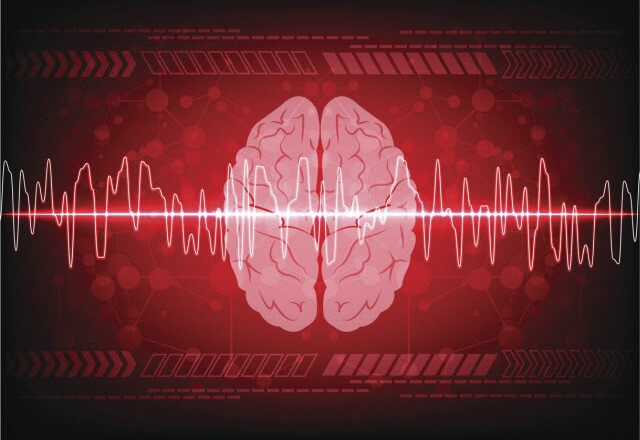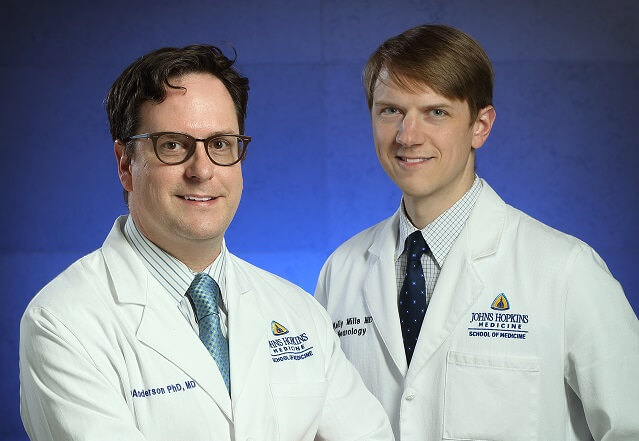Neuromodulation and other advanced treatments are changing the outlook for movement disorders such as Parkinson’s disease, as well as other conditions. Johns Hopkins’ Neuromodulation and Advanced Treatments Center brings together renowned experts from multiple disciplines who set new standards for both research and clinical treatment.
Learn more about:
What to Expect | Our Team | Conditions and Procedures
Conditions and Treatments
Conditions We Treat
The Neuromodulation and Advanced Treatments Center provides research-based treatments, including deep brain stimulation (DBS), and routine clinical care for movement disorders and other conditions, including:
- Dystonia
- Essential tremor
- Neuropsychiatric conditions such as schizophrenia and depression
- Parkinson's disease
- Tourette disorders
Treatments and Procedures
Patients will benefit from our systematic approach to diagnosis and treatment planning, and our array of medical and surgical therapies to address your unique situation, including:
- Deep brain stimulation (DBS) including stereotactic and intraoperative MRI-guided procedures
- Laser ablation of brain lesions
- Carbidopa/levodopa infusion therapy for Parkinson’s disease
- Research approaches such as transcranial direct current stimulation (tDCS) to address non-motor symptoms of Parkinson’s disease
- Other new therapies as they become available
What to Expect
Throughout the process, our care team empowers patients with patient education, as well as honesty and clarity about various treatment options.
-
First appointment? Contact Neurology: 410-502-0133. Your neurologist will be the point person for your care at our center.
Once your appointment is scheduled, you can send your medical records to us. If you have seen a neurologist in the past, we appreciate receiving his or her notes. An MRI is not necessary.
Neurosurgery: 410-955-6406
-
Your initial clinical evaluation involves the expertise of an entire multi-specialty panel of experts, who consider the impact of movement disorders on your physical and emotional well-being, as well as on your lifestyle.
Your first visit to our center will last about two and a half hours. Our team will take your medical history, review your medical records with you and may examine you while you are with, and then without, medications (on-off testing).
Your exam will include a routine neuropsychological evaluation to help you and your team understand cognitive and behavioral factors that can help shape your treatment recommendations.
-
Helping you understand the treatments is essential, and our doctors take time to go over each step of the procedure(s) with you, using educational materials and speaking in plain language.
You will gain clear insights on what DBS or another procedure may be able to do for you, as well as the time commitment, side effects and risks involved. This way, you and your doctor can work as partners in deciding the best course of action to address your condition.
Your treatment plan carefully balances the risk of surgical procedures, so you do not undergo unnecessary treatment. Other advanced therapies such as levodopa infusion for Parkinson's disease or ablation procedures for tremor may be available if DBS is not the best choice for you.
If brain surgery is part of your treatment plan, your surgeons have access to robotic stereotactic assistance for added precision during cranial and spine procedures. We offer both awake, stereotactic surgery with microelectrode recording and MRI-guided deep brain stimulation (DBS), so you and your doctor can determine the better option for you.
-
You may also meet with other practitioners for assessment of other health problems, as well as:
- Social support
- Occupational abilities
- Speech and language
- Swallowing
- Mood and cognitive factors
If gastrointestinal surgery is recommended for infusion therapy, our team works closely with leading gastroenterologists who specialize in endoscopic procedures.
-
A number of our doctors and surgeons are conducting research studies to test new treatments. Your doctor may discuss ongoing clinical trials that may be appropriate for you.
Open clinical trials:







